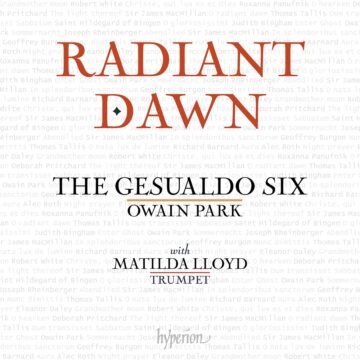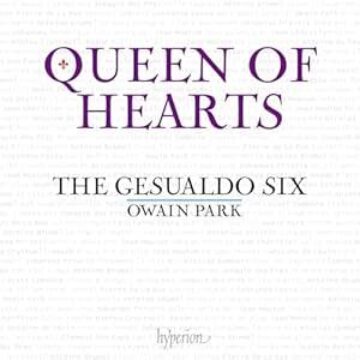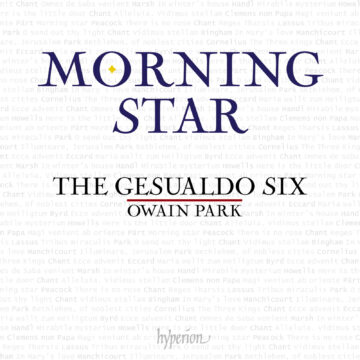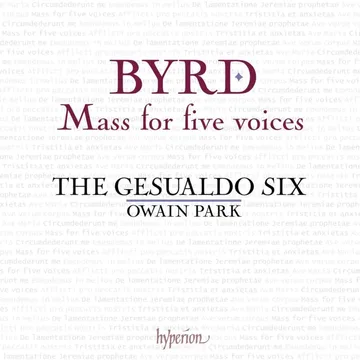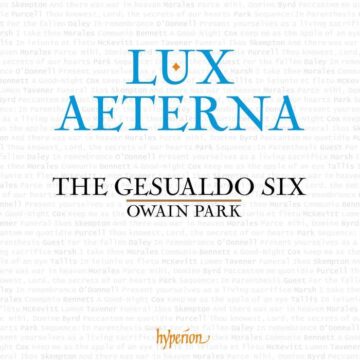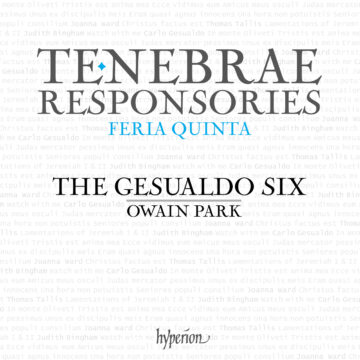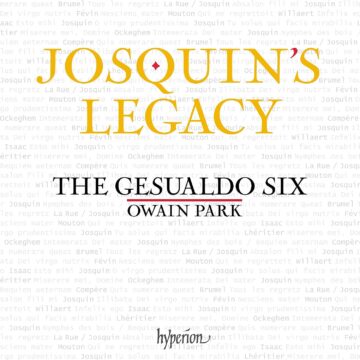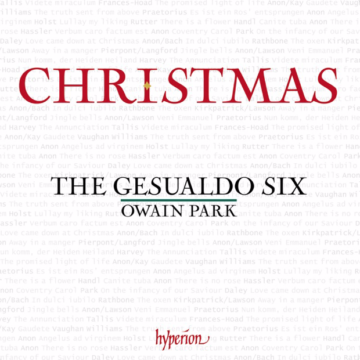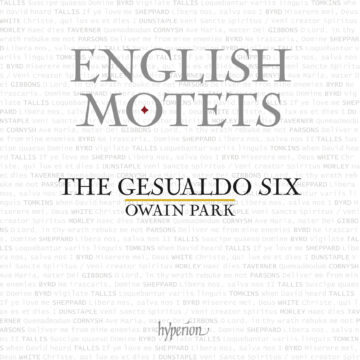The Gesualdo Six is an award-winning British vocal ensemble comprising some of the UK’s finest consort singers, directed by Owain Park. Praised for their imaginative programming and impeccable blend, the group formed in 2014 for a performance of Gesualdo’s Tenebrae Responsories in Cambridge and has gone on to perform at major festivals worldwide. Their programmes often explore both the golden age of Renaissance polyphony as well as newer works that speak across the centuries.
They appear frequently throughout the UK and Ireland, including concerts at BBC Proms, Snape Maltings, Cheltenham Music Festival, Lammermuir Festival, York Early Music Festival and Kilkenny Arts Festival. In London they give regular performances at Wigmore Hall, St Martin-in-the-Fields and Sinfonia Smith Square. Highlights worldwide include Miller Theatre New York, Sydney Opera House, Melbourne Recital Centre, Esplanade Singapore, Tokyo Bunka Kaikan Hall, Shanghai Symphony Hall and Muziekgebouw Amsterdam.
The ensemble has collaborated with Fretwork, the Brodsky Quartet and trumpeter Matilda Lloyd who appears on their tenth album Radiant Dawn, released in August 2025. They continue to tour the immersive concert-theatre work Secret Byrd directed by Bill Barclay, with whom they collaborate again on Death of Gesualdo which will have its first performances in 2026.
New music forms an integral part of their work and they regularly commission composers such as Shruthi Rajasekar, Joanna Marsh and Héloïse Werner. The ensemble has curated two Composition Competitions, with the most recent edition drawing entries from over three hundred composers worldwide. The Gesualdo Six is committed to music education, regularly hosting workshops for young musicians and composers.
The ensemble has harnessed the power of social media to make classical music accessible to millions worldwide, creating captivating videos from beautiful locations whilst on tour. The group released their debut recording English Motets on Hyperion Records in early 2018, which was described as “exquisitely done” by BBC Music Magazine and “spellbinding” by The Daily Telegraph. This was followed by further critically acclaimed releases, ranging from single composer discs of music by Gesualdo and Byrd to carefully curated sequences such as their discs Fading, Lux Aeterna and Queen of Hearts.
Owain Park - Director and bass
Guy James - countertenor
Alasdair Austin - countertenor
Joseph Wicks - tenor
Josh Cooter - tenor
Simon Grant - baritone
This biography is for information only and should not be reproduced.
Death of Gesualdo
St Martin in the Fields / January 2026
"The male vocalists of Owain Park’s Gesualdo Six sing the composer’s music with white-hot conviction, aptly astringent tonal colours and intonation so perfect that it almost makes you forget how challenging it is to deliver those chromatic lines and jolting harmonic non sequiturs."
Richard Morrison, The Times
"Singing with precision, pure tone and nuanced expression, their eyes blackened as if gouged out, the Gesualdo Six are outstanding"
Erica Jeal, The Guardian
"The power of that music sets the seal on an evening is ultimately a compelling guide through the labyrinth of the composer’s tortured genius. Owain Park – who, as well as directing the Gesualdo Six is Guest Conductor of the BBC Singers – coaxes the singers to extract every atom of anguish and exquisite melancholy from the composer’s work. "
Rachel Halliburton, The Arts Desk
"Featuring the vocal ensemble The Gesualdo Six – immaculately voiced as ever – alongside half a dozen actors, together with puppetry, it enacts a series of tableaux vivants incorporating iconography from Renaissance painting."
Barry Millington, Evening Standard
Radiant Dawn
The Gesualdo Six, British male singers of ineffable vocal beauty, make such beguiling sounds … The mix of music old and new works well, eased on its way by the artists of the Six themselves: two countertenors, two tenors, a baritone and a bass, who sing with commitment, polish and verve.
Geoff Brown, The Times
The five new classical albums to hear this week – featuring The Gesualdo Six and Sir Andrew Davis:- ‘Radiant Dawn’ is an exploration of musical evocations of dawn and dusk. It features two of James MacMillan’s Strathclyde Motets, as well as works by Tallis, Roxanna Panufnik, Judith Bingham, Geoffrey Burgon and Park himself.
James McCarthy, Gramophone
A mesmerising journey from dawn to dusk… The harmonic language of these pieces requires the highest musical standards… This is an ingenious and moving collection of pieces framed as the interplay between light and dark, and moving across the spectrum of such experiences.
Anthony Pryer, BBC Music Magazine
Secret Byrd
Secret Byrd, “an immersive staged mass”, took place in the candlelit crypt of St Martin-in-the-Fields. Owain Park directed the Gesualdo Six in Byrd’s Mass for Five Voices, with viol music by Fretwork: elite early music ensembles both, performing with effortless perfection.
Fiona Maddocks, The Guardian: The Observer Classical Music
The spirit of that clandestine celebration of a Catholic mass is at the heart of Bill Barclay’s Secret Byrd, an immersive concert held in the candlelit crypt of London’s St Martin-in-the-Fields. … Musically it’s glorious. The all-male voices ring out with intonational precision and an almost ecstatic connection to text that would have delighted Byrd, who intended the words to cut through the polyphonic underpinning. … What better way to open this year’s 400th anniversary celebrations.
Clive Paget, The Guardian
At the Black Abbey, The Gesualdo Six and Fretwork give a performance that could hardly be more compelling. … The all male vocal ensemble, The Gesualdo Six, appear in 16th-century servant costumes and move around, separating and regrouping, or sitting at the table. Conversation ceases, however, the minute the singing for the outlawed worship begins, in this case the opening Kyrie from Byrd’s Mass for Five Voices. It’s no wonder. The sound is breathtaking … and in this moment it’s hard to imagine a more compelling performance. The near-flawless unanimity of vocal sound in tone and vowels, as if a single brain were controlling the vocal production of five people, is in beautiful contrast with the individuality of musical shaping that each of Byrd’s polyphonic lines requires.
Michael Dungan, Irish Times
Queen of Hearts
The poignant theme of “regretz” in its various manifestations – sorrow, remorse, grief or lamentation – pervades this new recording by British vocal ensemble The Gesualdo Six … Throughout, The Gesualdo Six offer up introspective and expressive readings … it is impossible to find flaw with the ensemble’s matchless singing.
Kate Bolton-Prociutti, BBC Music Magazine
[The group’s] strengths are on full display from the opening of the very first piece, Brumel’s Sub tuum praesidium, an effectively simple Marian prayer whose chordal opening shows off the finely integrated power of the perfectly matched lower voices to great effect. This darkly sonorous texture is at its best in some of the larger-scale pieces such as the well-known seven-voice Ego flos campi by Clemens non Papa, and above all in Josquin’s architecturally towering masterpiece Praeter rerum seriem. … All in all this is a treasure trove of works, some little known and rarely performed, in a wide variety of styles and vocal scorings spanning the first half of the 16th century. Beautifully sung and meticulously researched, it will generously repay repeated hearings.
Iain Fenlon, Gramophone
Morning Star
Their style of singing – perfectly blended vocal harmony, exquisite tuning, inventive phrasing, delicately poised textural clarity – provides a magical accompaniment to the warmth of the Christmas season. … There are many engrossing and lovely musical experiences here.
Anthony Pryer, BBC Music Magazine
In terms of gleaming vocal purity, The Gesualdo Six, directed by Owain Park, are hard to beat. Their Morning Star (Hyperion) takes its title from Arvo Pärt but combines chant and early works (by Lassus, Byrd, Clemens non Papa) with new works by Joanna Marsh, Judith Bingham and Adrian Peacock. Park’s own O Send Out Thy Light is lyrical and radiant. Not so new but still beautiful, Herbert Howells’s Here Is the Little Door stands out. The dominant mood is quietude, contemplation.
Fiona Maddocks, The Guardian
Josquin's Legacy
This is an inventive piece of programming, combining the very well known and the nearly obscure: aside from Ockeghem’s Intemerata Dei mater and Brumel’s Tous les regretz, the pieces not by Josquin have seldom been recorded. But these lesser-known pieces earn their place in spades: Mouton’s lament for Févin is a gem, so too the piece by Févin himself; and Willaert’s setting of Infelix ego deserves to be heard alongside the more famous ones by Byrd and Lassus. Apart from the skill involved in assembling such a discriminating selection, it’s a clever way of introducing listeners to music that might otherwise pass them by. … There’d be something to cite in virtually every piece but I’ll focus on just three: the tricky corners in Tous les regretz are beautifully coordinated; the concluding passage of the Willaert sets the words ‘Miserere mei, Deus’, a not quite exact but obviously intentional quotation of Josquin’s setting of that psalm – a wonderful moment that is beautifully stage managed; finally, the performance of Absalon fili mi is simply jaw-dropping: beautifully controlled and restrained but intensely moving. The upper voice is taken by a high tenor, so that the bass goes down to low C (he might almost be Flemish, and for basses there’s no greater compliment). I have great affection for The Hilliard Ensemble’s recording (Virgin/Erato, 3/84) but this, I think, is better still… as a single-disc introduction to the motet of Josquin’s time, this is hard to beat.
Fabrice Fitch, Gramophone
Music written before 1600 remains terra incognita for many listeners, though the names of composers from that period are gradually becoming better known thanks to the skilled ensembles who perform this early repertoire. One such, the young British vocal group The Gesualdo Six, directed by Owain Park, have called their latest album Josquin’s Legacy (Hyperion). The spur is this year’s 500th anniversary of the death of Josquin des Prez. One of the most influential European composers of the Renaissance, he spent time in the Italian city of Ferrara, a magnet for composers from France and the Low Countries, and the focus here of the music chosen. … The central work, Josquin’s highly personal Nymphes des Bois, was composed in memory of the Franco-Flemish composer Ockeghem, whose own five-part setting to the Virgin Mary, Intemerata Dei mater, opens the album. Works by Jean Mouton, Adrian Willaert, Heinrich Isaac and others complete this impeccably performed recital. It’s hard to think it could be better sung.
Fiona Maddocks, The Guardian
English Motets
…while the title can’t be faulted on grounds of accuracy, ‘English Motets’ gives little hint of the glorious treasure trove lurking within. … Weavers of rich and plangent aural tapestries, The Gesualdo Six meld style and substance with beguiling sure-footedness. An auspicious debut.
Paul Riley, BBC Music Magazine
This selection of English motets proves to be a fine showcase for their clear voices, immaculate intonation and a certain instinct for the drama and intensity of the repertoire, as they explore the extraordinary journey that composition took around the English Reformation.
Andrew MacGregor, BBC Record Review
The genre [motets] flourished mightily in England, as it did all over Europe, and Owain Park, the director of young vocal group The Gesualdo Six has set out to represent the English kind in all its variety. … It’s an ambitious aim for a single CD – but Park pulls it off. The blend and tuning of the voices is so fine that the group achieves a powerfully full sound. … The sheer beauty of the group’s sound in lofty high-Renaissance style pieces like Byrd’s Miserere is spellbinding. The fine-grained texture of solo voices allows us to savour the amazing harmonic pungency of English sacred music, which at times seems almost modernist. It is a wonderful achievement.
The Daily Telegraph
The vocal quality is very fine, not to say superb, and when the music calls for an extrovert approach (as do Byrd’s Vigilate or, very differently, Dunstable’s four-voice Veni Sancte Spiritus) the singers respond with an athleticism and a feel for pacing that isn’t perhaps so common. The close miking does justice to the contrapuntal details, maintaining clarity in all but the densest writing.
Gramophone
These photos are available to be downloaded.
Right click on a desired image and select the "Save Link As" option.

